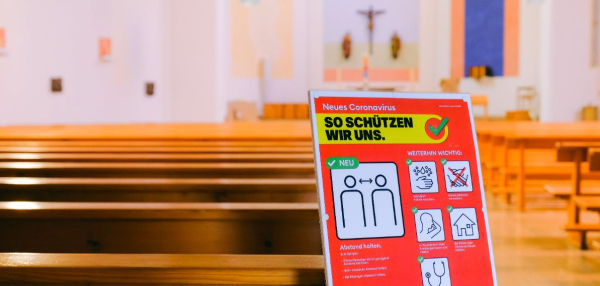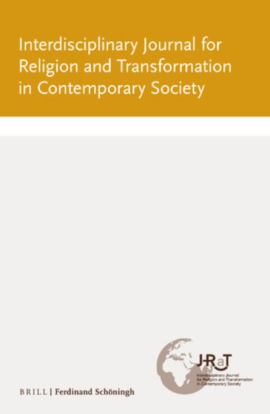|
If the newsletter does not display properly, please click here. |

|
|||||||
|
|||||||
|
Dear colleagues and friends, This week we want to draw your attention to a text by Christoph Kleine, two calls for papers and one call for posters. Enjoy! If you have any content that you think suits the purpose of the weekly, please feel free to send it to us at multiple-secularitites@uni-leipzig.de. |
|||||||

|
|||||||
Christoph Kleine on Religion as Superspreader and Epidemiological Risk FactorFor some years now, even die-hard proponents of the secularisation theory should have realised that religion is still (or even more than ever) a multifaceted powerful factor in global modernity. The global dynamics that are set in motion by the less domesticated forms of religion in particular can no longer be ignored. Especially the worldwide spread of Salafist or Evangelical ideas is sometimes metaphorically described as an epidemic. A few weeks ago we learned that religions can also be epidemically effective in a non-metaphorical way. Religious communities are now generally acknowledged “superspreaders” of the corona epidemic. Read the full text by KFG Director Christoph Kleine in our bulletin.
|
|||||||
CfP: Workshop on Religion as a Colonial Category in GermanyIsabelle Schwaderer from the Department for the Study of Religions at the University of Erfurt will host a workshop on the topic From Universalism to ‘Ethnopathos’ in Religious Knowledge on South Asia – An Intersectional View on Religion as Colonial Category in Germany 1871-1945. The workshop will focus on the possible continuity and intersectionality of colonial thought structures, examining argumentative patterns in National Socialism starting from the issue of knowledge production on ‘India’. 16-17 January 2021, Erfurt
|
|||||||
|
|||||||

|
|||||||
Call for Posters: Conference on Jewish TopographiesBet Tfila (research unit for Jewish Architecture in Europe) will organize a conference on Jewish Topographies – 5th International Congress on Jewish Architecture at the Technische Universität Braunschweig. The conference will discuss the term Jewish topography and its socially and culturally phenomena based on historical case studies. Jewish topographies stand in a spatial and social context with corresponding places of the non-Jewish population, in which different cultural, religious or ethnic groups find their own spaces. 21-23 September, Braunschweig
|
|||||||
|
Kolleg-Forschungsgruppe "Multiple Secularities - Beyond the West, Beyond Modernities" Nikolaistraße 8-10, 04109 Leipzig Mail: multiple-secularities@uni-leipzig.de |
